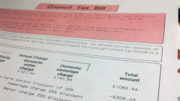Who am I to tell anybody what rent they should be charging for their properties? Well I’m not going to even try. But there are certain things that are common sense and could give you some ideas about how to calculate what is a fair rent, that is appropriate for your properties and will keep your properties tenanted as long as possible.
Landlords are operating in a market and as competition between the major supermarkets will determine whether we shop at Asda or Tesco, so will competition between landlords determine whether one operates at maximum capacity with a waiting list and one who scratches around for tenants on a regular basis as his tenants move on.
Is the rent you want at the right level? Compare with similar properties in the area. Is the most economical also the one with the most basic amenities? Is yours freshly decorated with an en-suite bathroom? Look at the facilities you provide and advertise them. Wi-fi, washing machines, new carpets, are all worth mentioning.
Be clear about how services are charged for and what is included in the rent. If there are additional payments, be up-front about them and prove how the charges have been calculated. If a house is in multiple-occupation, the landlord is still responsible for Council Tax, though if all tenants are students, this should provide exemption – but, if even one of the tenants leaves the University course, whether working or not, the exemption is eradicated.
A case I heard of showed how difficult the provision of electric can be. The landlord was used to having students in his property, which was all electric. His other tenants were from abroad and were happy to pay what was a reasonable rent and £20 per week for the electric. They did not argue, but then a new student came who had family 50 miles away – too far to travel to university on a daily basis, but close enough to spend weekends and holidays at home.
During the first term, the new tenant was accustomising himself to the area, to his housemates and his studies. But by the second term, he wanted to go home whenever he could – the food was better! He happily paid the rent but started to feel the electricity charge was unfair.
He went home for over 3 weeks at the Easter break and, as he was not using electricity during that period, nor for the 6 weekends he had been home, felt he was entitled not to pay. The landlord thought that the electricity charge was averaged out, so wanted the electricity charge paid. I am afraid this was one of the rare occasions my sympathy was with the tenant. He had a very good reason to feel that, whilst prepared to pay for the weekends he was absent, payment for the holiday periods could not be justified.
Sadly, this was a situation that could not be rectified. The landlord could not prove this was a reasonable charge because there was no separate meter; the tenant continued to feel aggrieved.
At the end of the tenancy, the landlord deducted the non-payment of the charge from the deposit. The tenant left and found alternative accommodation where he had his own electricity meter and was therefore able to economise on his useage or otherwise but felt he had been fairly charged.
My advice to the landlord was to get separate meters, though as he said, this system worked well for his foreign tenants; he was more likely to look for another foreign tenant than get meters installed.
Rent should be calculated to provide a profit for the landlord. If there are extras to pay, the landlord must be prepared to prove to the tenant that these charges are reasonable.
For advice on buy to let issues – General Knowledge









Be the first to comment on "How to Calculate the Rent for Your Property"